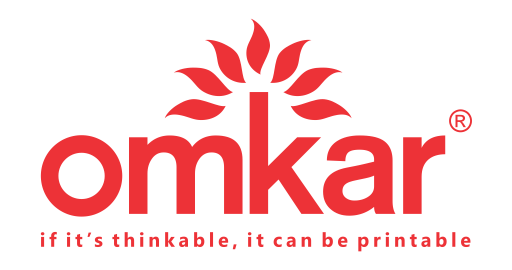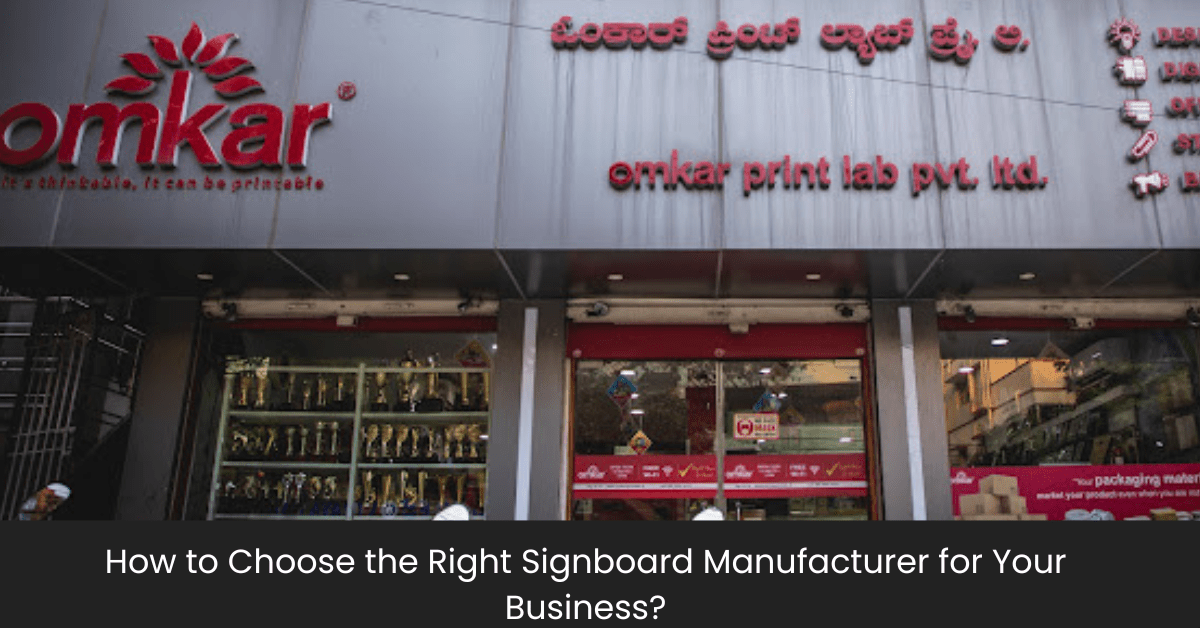Importance of Choosing the Right Signboard Manufacturer
Selecting the right signboard manufacturer is crucial for ensuring that your business’s signage stands out and effectively communicates your brand message. A well-chosen manufacturer will provide high-quality products that enhance your visibility and attract customers, while a poor choice could lead to costly mistakes and missed opportunities.
Benefits of High-Quality Signage
High-quality signage offers numerous benefits, including:
- Enhanced Brand Visibility: Prominent and well-designed signs attract attention and help your business stand out.
- Increased Customer Engagement: Effective signage can guide customers, promote offers, and improve their overall experience.
- Professional Image: Well-crafted signs reflect professionalism and can positively influence customer perceptions.
2. Understanding Your Signage Needs
Identifying Your Business Requirements
Before selecting a manufacturer, it’s essential to define your business’s specific signage needs:
- Type of Business: Different businesses require different types of signage, such as outdoor signs, indoor signs, or directional signs.
- Purpose of the Sign: Determine whether the sign is for branding, wayfinding, promotions, or informational purposes.
- Location and Visibility: Consider where the sign will be placed and how visible it needs to be.
Types of Signboards
Understanding the types of signboards available can help you choose the right one for your needs:
- Outdoor Signboards: Designed to withstand weather conditions, these include billboards, building signs, and pylon signs.
- Indoor Signboards: Used for interior branding or wayfinding, such as lobby signs, directory boards, and digital displays.
- Temporary Signboards: Often used for events or promotions, including banners, pop-up signs, and portable displays.
Customization and Personalization
Customizing your signboards ensures they align with your brand identity and message:
- Design Elements: Incorporate brand colors, logos, and fonts to create a cohesive look.
- Personalization Options: Options may include custom shapes, sizes, and materials tailored to your specific requirements.
3. Researching Potential Signboard Manufacturers
Finding Manufacturers
Start by researching potential signboard manufacturers:
- Online Search: Use search engines to find manufacturers in your area or industry.
- Industry Directories: Consult directories or trade associations for reputable manufacturers.
- Recommendations: Seek recommendations from other businesses or industry professionals.
Evaluating Manufacturer Reputation
Assessing a manufacturer’s reputation is crucial:
- Online Reviews: Read reviews on platforms like Google, Yelp, or industry-specific sites.
- Ratings: Check ratings and feedback from previous clients.
- Reputation in the Industry: Consider how the manufacturer is perceived within the industry.
Checking Reviews and Testimonials
Reviews and testimonials provide insight into the manufacturer’s performance:
- Client Feedback: Look for reviews that discuss product quality, service, and overall satisfaction.
- Case Studies: Examine case studies or project examples to understand the manufacturer’s capabilities.
4. Evaluating Experience and Expertise
Industry Experience
Experience in the industry often correlates with reliability and expertise:
- Years in Business: Longer experience may indicate stability and expertise.
- Types of Projects: Assess the range of projects the manufacturer has handled, including any similar to yours.
Technical Expertise
Technical expertise ensures that the manufacturer can handle complex or custom requirements:
- Skilled Workforce: Look for manufacturers with skilled designers, engineers, and technicians.
- Technological Capabilities: Ensure the manufacturer uses up-to-date technology and equipment.
Portfolio of Previous Work
Reviewing a manufacturer’s portfolio provides a glimpse into their work quality:
- Variety of Projects: Check for a diverse range of projects, including various sign types and styles.
- Quality of Work: Assess the quality and craftsmanship of the signs in the portfolio.
5. Assessing Product Quality and Materials
Types of Materials Used
Different materials offer various benefits and drawbacks:
- Acrylic: Durable and versatile, ideal for both indoor and outdoor signs.
- Aluminum: Lightweight and weather-resistant, suitable for outdoor use.
- Vinyl: Cost-effective and flexible, often used for temporary signs and wraps.
Durability and Maintenance
Consider the durability and maintenance requirements of the materials:
- Weather Resistance: Ensure the materials can withstand environmental conditions if used outdoors.
- Maintenance Needs: Some materials require more maintenance than others; choose based on your ability to maintain the signs.
Quality Assurance Processes
A reliable manufacturer should have quality assurance processes in place:
- Inspection Procedures: Look for manufacturers who conduct thorough inspections at various stages of production.
- Standards and Certifications: Check for adherence to industry standards and any relevant certifications.
6. Exploring Design and Customization Options
Design Capabilities
The manufacturer’s design capabilities are crucial for achieving your vision:
- Design Expertise: Ensure they have experienced designers who can bring your ideas to life.
- Design Tools: Check if they use advanced design tools and software for accurate and creative designs.
Customization Services
Customization options allow you to tailor the signs to your needs:
- Design Flexibility: Assess the manufacturer’s ability to accommodate custom designs, shapes, and sizes.
- Material and Finish Choices: Ensure a variety of materials and finishes are available for customization.
Collaborating on Design
Effective collaboration is key to achieving the desired outcome:
- Communication: Look for manufacturers who communicate clearly and are responsive to your needs.
- Revision Process: Understand their process for making revisions and adjustments to the design.
7. Understanding Pricing and Budgeting
Cost Breakdown
Understanding the cost breakdown helps you manage your budget:
- Base Cost: The cost of the signboard itself, including materials and production.
- Customization Fees: Additional charges for custom designs, colors, or finishes.
- Installation and Delivery: Costs associated with delivery and installation services.
Comparing Quotes
Comparing quotes from multiple manufacturers ensures you get the best value:
- Detailed Quotes: Request detailed quotes that include all potential costs.
- Inclusions and Exclusions: Understand what is included in the quote and any additional fees that may apply.
Value for Money
Consider the overall value rather than just the cost:
- Quality vs. Price: Balance the quality of the signboards with the price.
- Long-Term Value: Evaluate the durability and longevity of the signs to ensure they provide good value over time.
8. Reviewing Customer Service and Support
Communication and Responsiveness
Effective communication and responsiveness are essential for a smooth process:
- Initial Contact: Assess how promptly and professionally the manufacturer responds to inquiries.
- Ongoing Support: Ensure they offer support throughout the project, from design to installation.
After-Sales Support
After-sales support is crucial for addressing any issues that arise:
- Warranty: Check if they offer a warranty on their products and services.
- Maintenance Services: Inquire about any maintenance or repair services available.
Handling Issues and Complaints
A reliable manufacturer should handle issues and complaints effectively:
- Problem Resolution: Assess their approach to resolving problems and addressing concerns.
- Customer Satisfaction: Look for manufacturers who prioritize customer satisfaction and have a good track record of handling complaints.
9. Considering Delivery and Installation Services
Delivery Options
Delivery options and logistics are important for timely project completion:
- Delivery Timeframes: Understand the expected delivery timelines and any potential delays.
- Shipping Costs: Inquire about shipping costs and any associated fees.
Installation Services
Installation services ensure that your signboards are properly set up:
- Professional Installation: Look for manufacturers who offer professional installation services.
- Installation Costs: Understand the costs associated with installation and any additional services provided.
Timelines and Scheduling
Timelines and scheduling impact your project’s success:
- Project Timeline: Discuss the overall project timeline, including design, production, and installation.
- Scheduling Flexibility: Ensure the manufacturer can accommodate your schedule and any specific timing requirements.
10. Navigating Legal and Compliance Issues
Local Regulations and Permits
Compliance with local regulations and permits is essential:
- Permit Requirements: Research the permit requirements for installing signboards in your area.
- Regulatory Compliance: Ensure the manufacturer is familiar with local regulations and can assist with obtaining necessary permits.
Compliance with Industry Standards
Adherence to industry standards ensures quality and safety:
- Industry Standards: Check if the manufacturer follows relevant industry standards and guidelines.
- Certifications: Look for certifications that indicate compliance with industry norms.
Warranty and Guarantees
Warranties and guarantees provide peace of mind:
- Product Warranty: Ensure the manufacturer offers a warranty on their products.
- Service Guarantees: Inquire about guarantees related to installation and any additional services.
11. Making the Final Decision
Comparing Options
Compare the options based on your research and evaluations:
- Strengths and Weaknesses: Assess the strengths and weaknesses of each manufacturer.
- Overall Fit: Consider how well each manufacturer aligns with your business needs and requirements.
Key Factors to Consider
Key factors to prioritize in your decision-making process:
- Quality and Reliability: Ensure the manufacturer delivers high-quality and reliable products.
- Customer Service: Choose a manufacturer with excellent customer service and support.
- Value for Money: Balance cost with the value and quality provided.
Signing the Contract
Review and sign the contract carefully:
- Contract Details: Ensure the contract includes all agreed-upon terms, including costs, timelines, and services.
- Legal Review: Consider having the contract reviewed by a legal professional to ensure all terms are clear and enforceable.
12. Case Studies and Examples
Success Stories
Highlight successful projects and case studies:
- Client Examples: Share examples of clients who have benefited from high-quality signboards.
- Project Details: Provide details on the project scope, challenges, and outcomes.
Lessons Learned
Discuss lessons learned from previous projects:
- Best Practices: Share best practices and insights gained from working with different manufacturers.
- Common Pitfalls: Highlight common pitfalls to avoid when selecting a signboard manufacturer.
Practical Examples
Provide practical examples to illustrate key points:
- Design Examples: Show examples of different signboard designs and their impact.
- Case Studies: Include case studies that demonstrate effective signage solutions for various businesses.
13. Conclusion
Recap of Key Points
Summarize the key points covered in the guide:
- Importance of Selection: Emphasize the importance of choosing the right manufacturer for your business.
- Key Criteria: Recap the key criteria for evaluating and selecting a signboard manufacturer.
Final Tips for Choosing a Signboard Manufacturer
Offer final tips to help readers make the best choice:
- Do Your Research: Thoroughly research and evaluate potential manufacturers.
- Prioritize Quality: Focus on quality and value rather than just cost.
- Communicate Clearly: Maintain clear communication with the manufacturer throughout the process.

